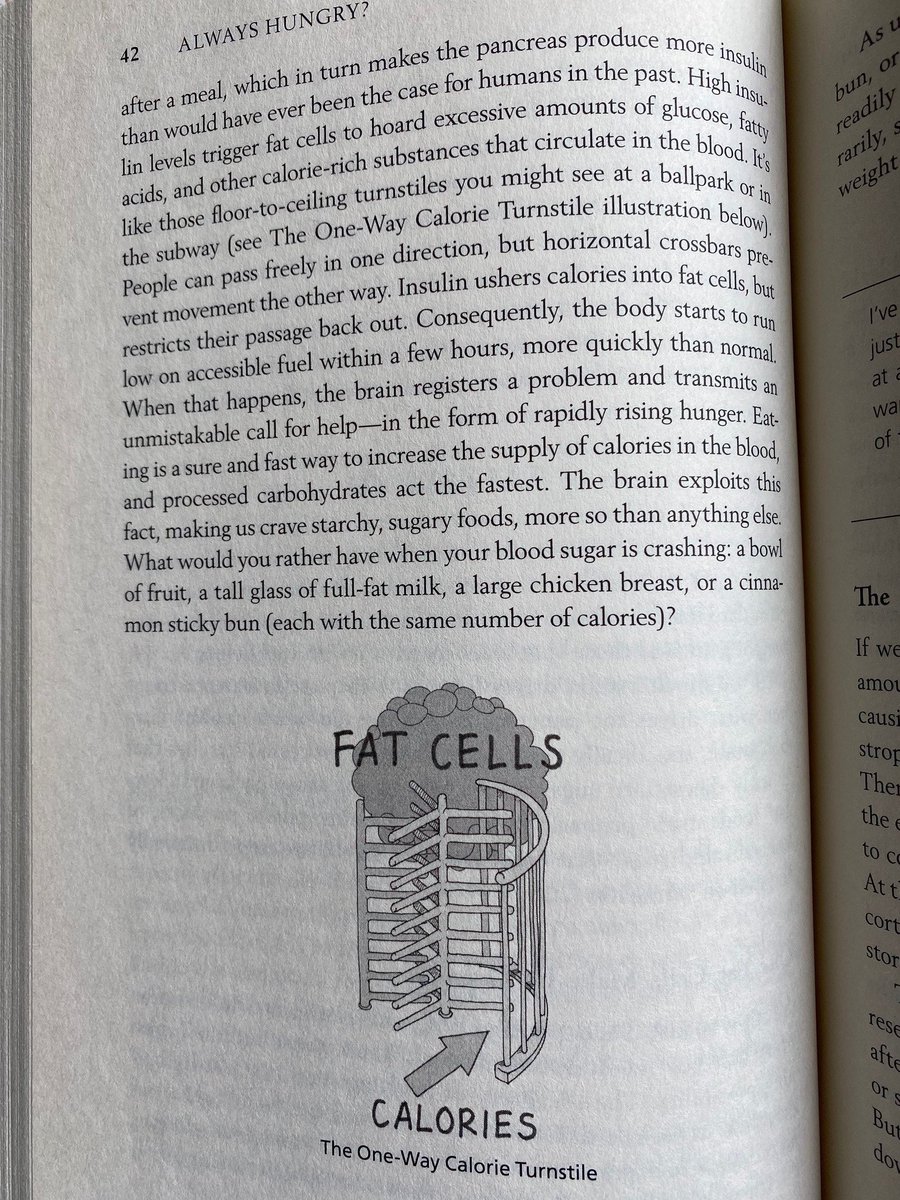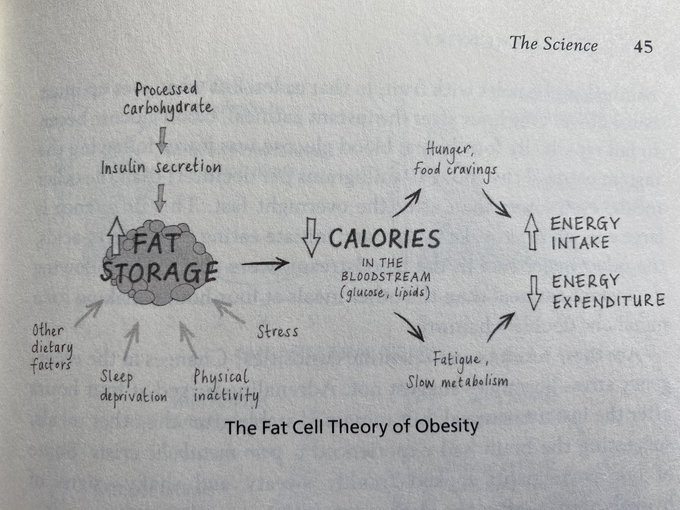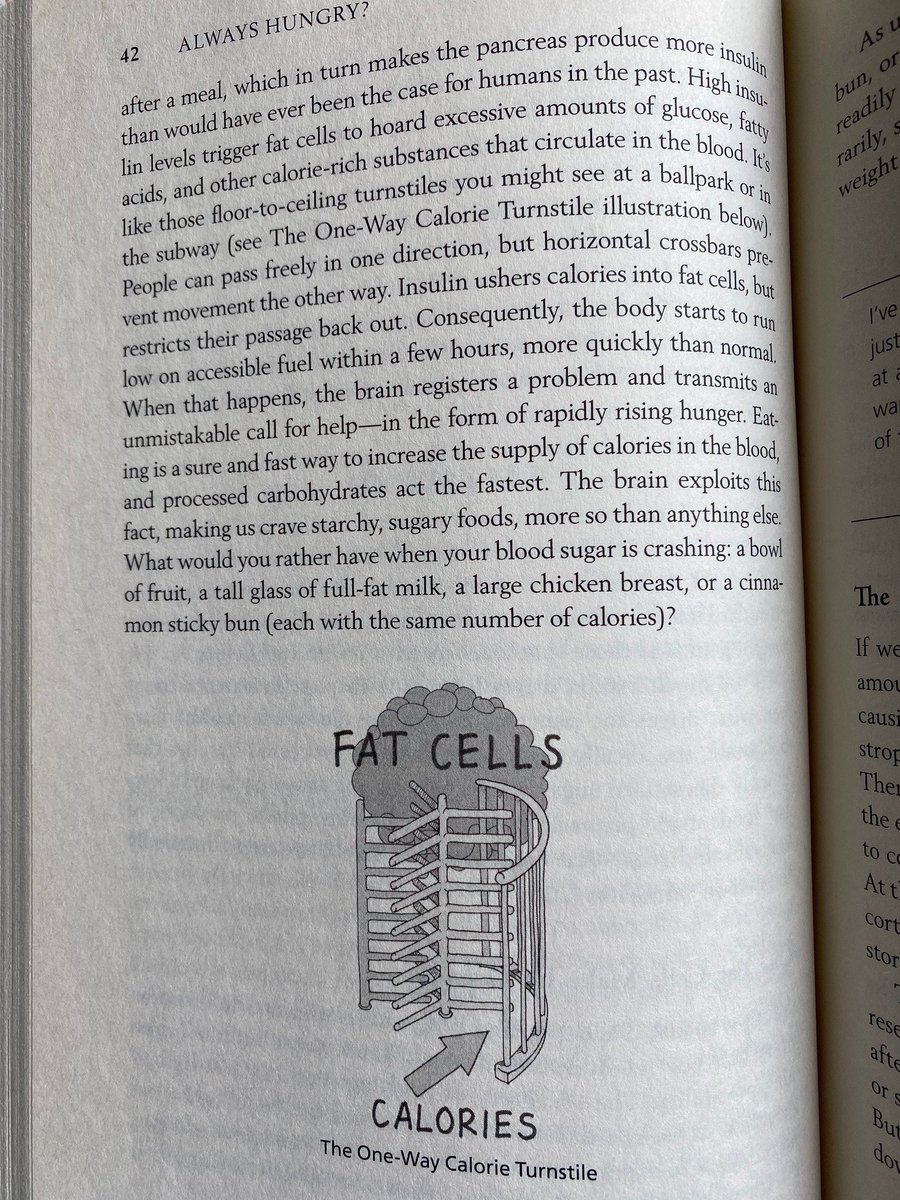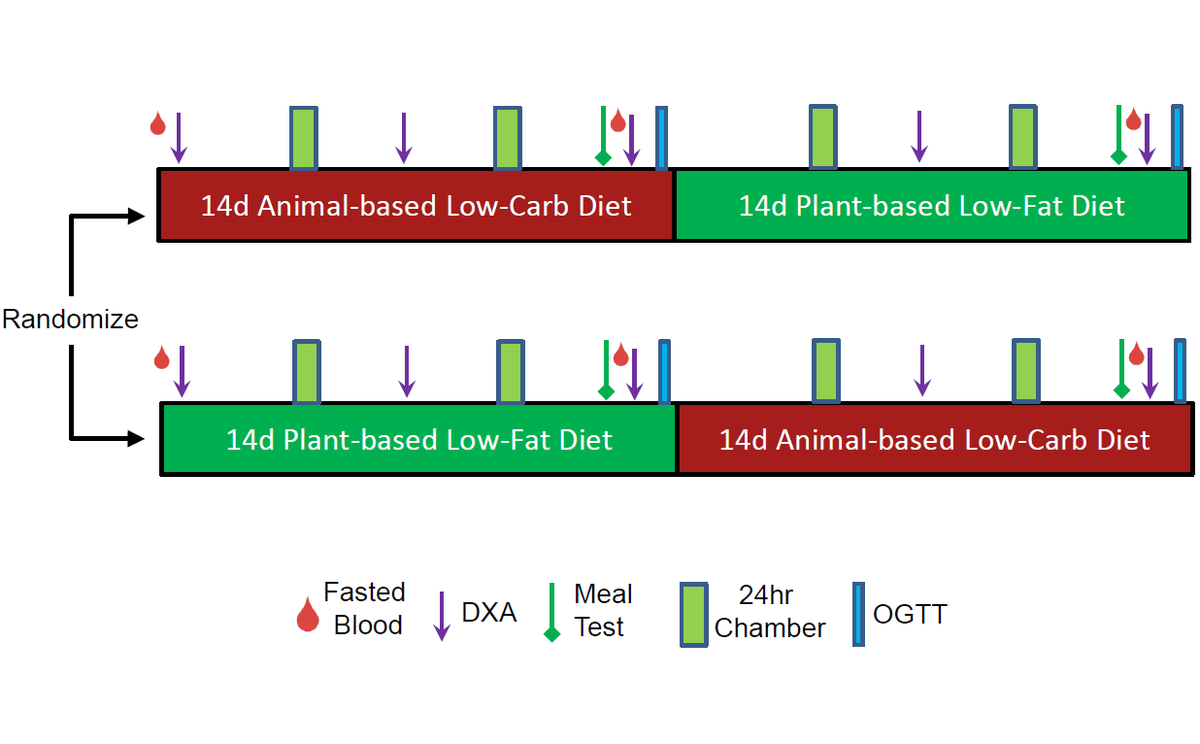
The idea that the carbohydrate-insulin model (CIM) has always stated that it takes >2 weeks for changes to hunger and metabolism to occur is a major goal-post shift. Let's discuss...
https://twitter.com/davidludwigmd/status/1395164735734263808
The mechanisms proposed by the CIM involve known *rapid* actions of insulin, within hours after meals containing carbs insulin acts to suppress lipolysis and stimulate fat uptake and storage in adipose tissue. Insulin thereby traps fat in the "One-way Calorie Turnstile" 

The CIM goes on to suggest that these established rapid actions of insulin on adipose to sequester and accumulate calories is the cause of increased hunger, overeating and slowing metabolism because anabolic adipose starves non-adipose tissues of fuel. 

Lowering insulin quickly mobilizes fat from adipose, raising blood fatty acids, thus CIM predicts alleviation of "internal starvation" of non-adipose. The alleviation process could take weeks, but CIM originally suggested otherwise! Phase1 of the 'Always Hungry?' diet says <2 wks
'Always Hungry?' page 150: "...big declines in hunger sometimes from as early as Day 1. As fat cells calm down and begin to release their excess calorie stores back into the body, your brain will register...that it has enough fuel to run your metabolism in optimal mode..."
"Since your body will be burning more fat, your need for external calories will decrease. You'll fill up with less food and stay full longer." So, consistent with the known rapid insulin effects, the CIM circa 2016 predicts rapid effects on hunger, energy intake, and metabolism.
Here ~4:30, @davidludwigmd claims, based on the CIM circa 2016, that Biggest Loser folks could have avoided weight regain because "These biological responses that fight against weight loss can be reversed in potentially as little as one meal or one day" wgbh.org/news/2016/05/1…
But then experiments revealed many of the predictions of the CIM did not materialize after many days and weeks. Rather than acknowledge the CIM was incorrect to claim rapid effects, goal-posts were shifted and these studies were deemed "weak" and safely ignored as irrelevant.
Taking the CIM seriously and devising experimental tests that are summarily dismissed and goal-posts have constantly shifted is even more exhausting than these debates on Twitter! @MichaelMindrum aptly described it here:
https://twitter.com/MichaelMindrum/status/1394600730020007939?s=20
And if you made it this far and are worried that I'm describing a "straw man" version of the CIM, see the thread below:
https://twitter.com/KevinH_PhD/status/1394404452543516673?s=20
• • •
Missing some Tweet in this thread? You can try to
force a refresh








